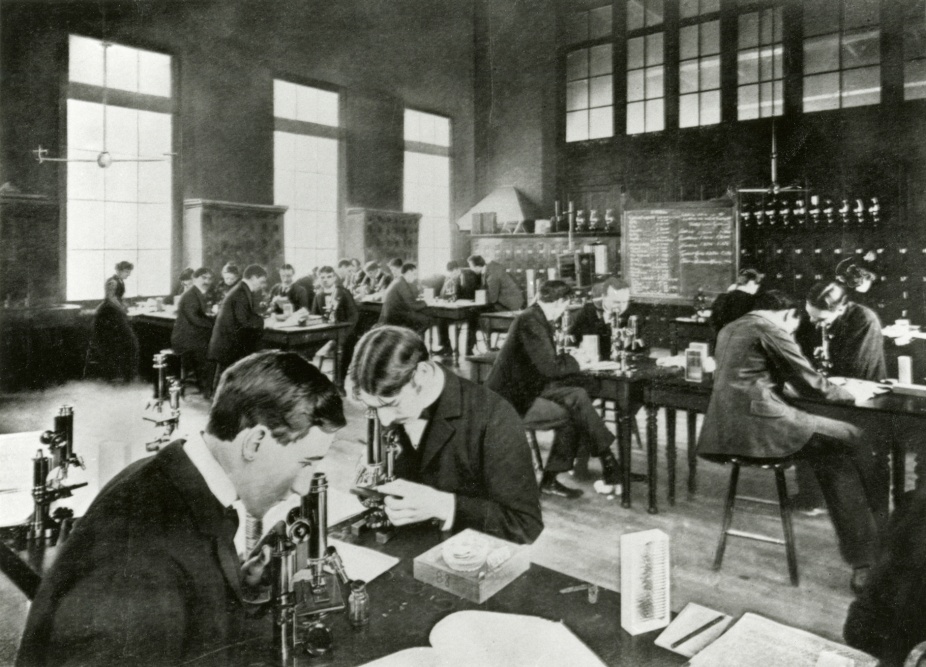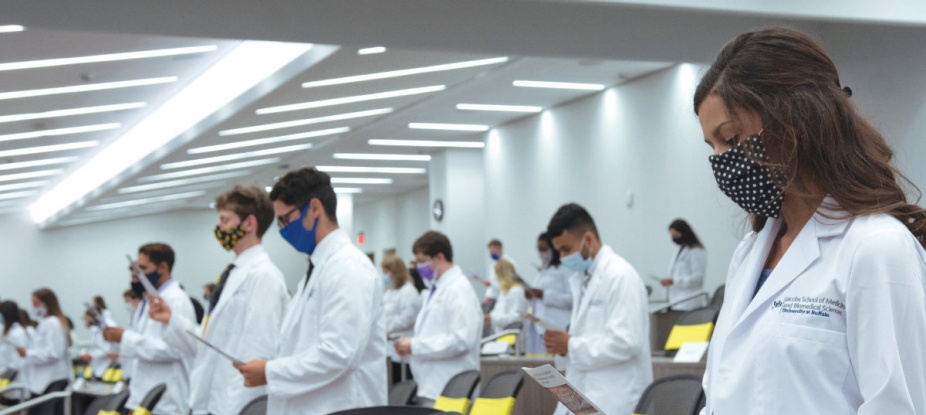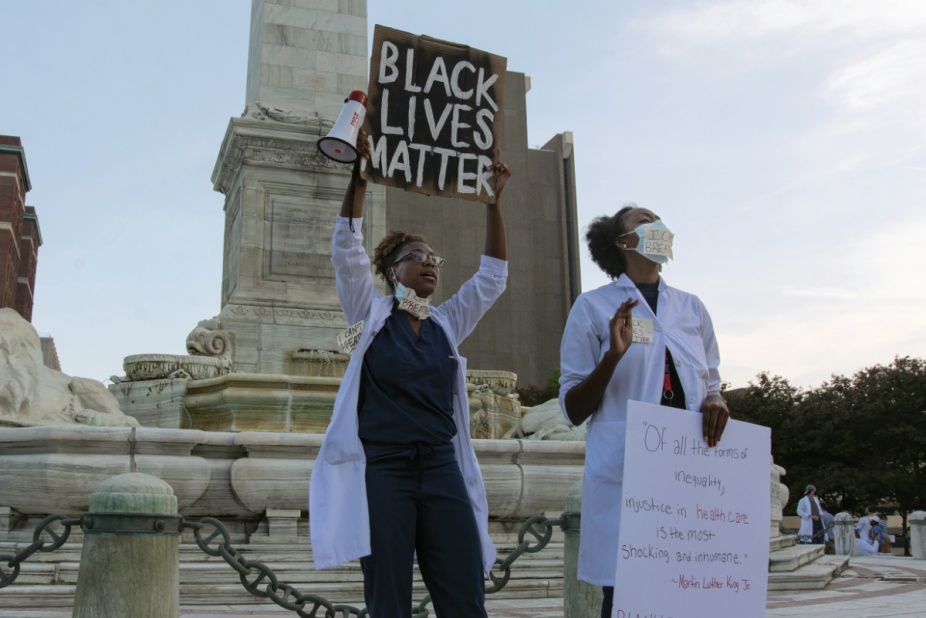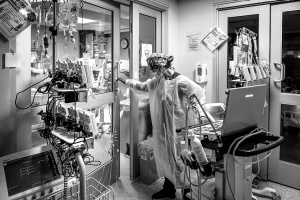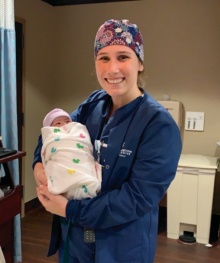
We celebrate the 175th anniversary of the Jacobs School of Medicine and Biomedical Sciences at a time when many situations urgently demand our attention and energy. We are in the throes of the worst pandemic in over a century, which in turn is highlighting health care disparities in our country that are grounded in deeply rooted social injustices. These realities are necessitating conversations about the need to more effectively address issues of racial diversity and inclusion in medical education and academic medicine. Similar conversations are taking place around gender disparities.
On this page:
175 Years of Medical Education and Research in Buffalo
Learn about the people, places and events that have shaped our history from 1846-2021.
Landmark Achievements
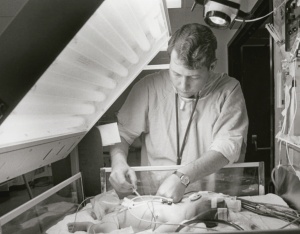
Since the school’s founding in 1846, its faculty have made significant contributions to the advancement of the basic sciences and clinical care.
Medical Education in the Midst of a Pandemic
The COVID-19 pandemic has had a far-reaching impact on the Jacobs School of Medicine and Biomedical Sciences, with reverberations cascading through its medical education, training, and research programs.
“Our students, perhaps especially the first-year students, are profoundly aware of the significance of undertaking their medical education during the worst global pandemic in a century,” says Michael E. Cain, MD, vice president for health sciences at the University at Buffalo and dean of the Jacobs School.
During this extraordinary time in the school’s history, much effort has been dedicated to keeping the lines of communication open between administrators, faculty and students.
The White Coats 4 Black Lives march was organized by Ashley Jeanlus, MD, obstetrics and gynecology resident, right, pictured with Latrice Johnson, MD, also an obstetrics and gynecology resident.
Time to Move the Pendulum
Any physician will tell you that medical school was one of the most—if not the most—stressful times of their life, even if they attended when societal and cultural dynamics were relatively stable.
Given this reality, one can’t help but wonder how today’s medical students will remember their medical school years, as one norm-shattering event after another has unfolded, competing for their time, energy and attention.
In just this last year alone, students have seen their teachers and mentors battling a devastating pandemic; experienced the sudden closure of their classrooms and labs, which severed them from interactions that help ease the challenges of medical school; witnessed the nation rocked by a powerful protest movement catalyzed by the killing of George Floyd; and lived through a volatile presidential election that culminated in an attack on the U.S. Capitol.
While all medical students have been affected by these events, medical students of color have been affected in a more immediate way, and the manner in which these aspiring physicians are responding is generating initiatives—and insights—that promise to inform positive changes in the Jacobs School of Medicine and Biomedical Sciences for years to come.
Forward Thinking
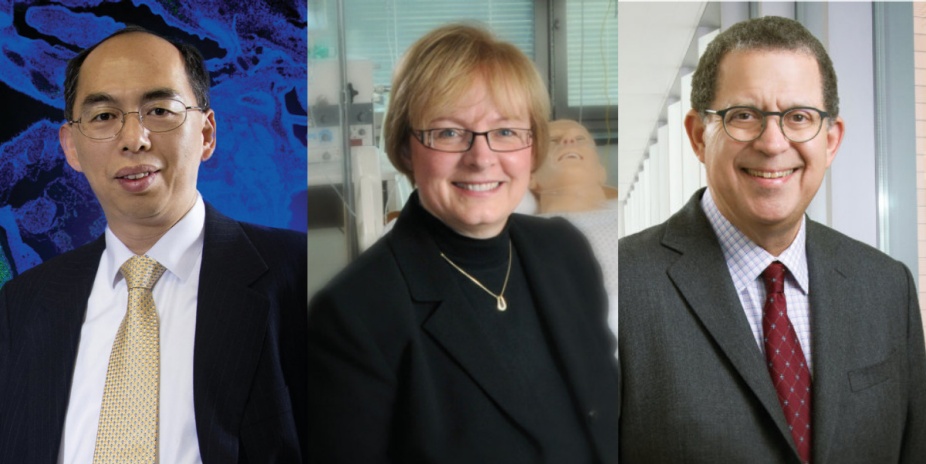
No one can say for sure which issues will be front and center in health care in 25 years, when the Jacobs School of Medicine and Biomedical Sciences marks its 200th anniversary.
Experts in medicine and the biomedical sciences, however, are trained to think ahead and anticipate the shifting landscape of knowledge, both practical and theoretical, in order to help prepare society for challenges and opportunities that lie ahead.
Here you will read a series of essays written by 12 of our school’s top faculty experts who have been asked to address a variety of topics germane to society today and to ponder how these issues will evolve over the next 25 years.
A Photo Tribute to Our Frontline Workers
Only history will tell where COVID-19 ultimately ranks in comparison with other pandemics, but for UB faculty physicians and medical residents working on the frontlines of the crisis, the pandemic is an epic challenge, both in its acute and chronic phases.
More than 500 faculty physicians and 700 medical residents from the Jacobs School of Medicine and Biomedical Sciences provide care to patients in UB’s affiliated teaching hospitals throughout Western New York.
Many of these physicians are treating COVID-19 patients in work conditions unlike any they have experienced before. They are doing this while providing instruction and oversight as professors or while conducting research.
Patients and Families Helping to Advance Care
As varied as these research breakthroughs have been, however, something they all have in common is that they didn’t happen overnight, but were the product of many years of incremental discoveries made by researchers, often from around the world.
Another thing that all major medical advances have in common is their immediate, positive impact on patients and their families.
This is why physician-scientists in the Jacobs School partner everyday with patients and families who are motivated to advance standards of care for a particular disease or condition.
In Memoriam: Adeline ‘Addie’ Fagan, MD ’19
Adeline “Addie” Fagan, MD ’19, died on Sept. 19, 2020 due to COVID-19 complications. She was 28.
Addie was just beginning her second year of residency in obstetrics and gynecology in Houston. In July, she started a rotation in an emergency department at a hospital and became ill with COVID-19. She was hospitalized and placed on a ventilator and on extracorporeal membrane oxygenation (ECMO), a specialized form of life support.
